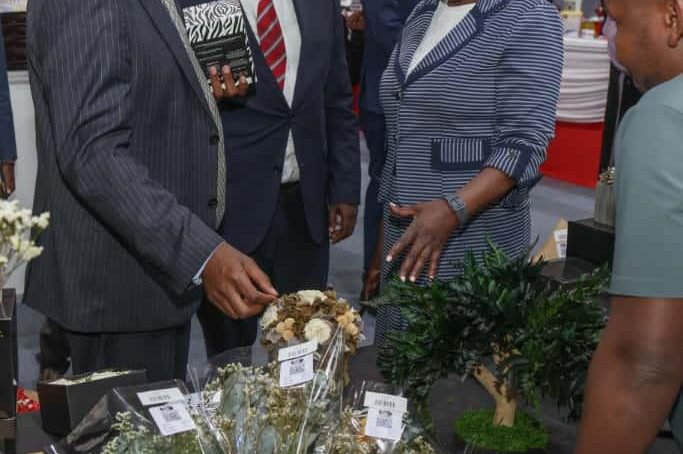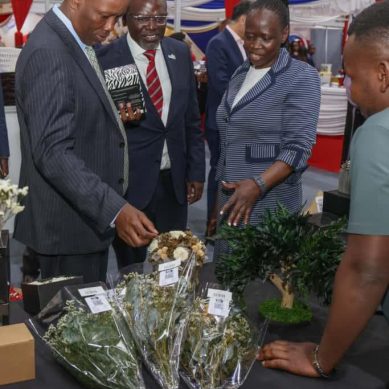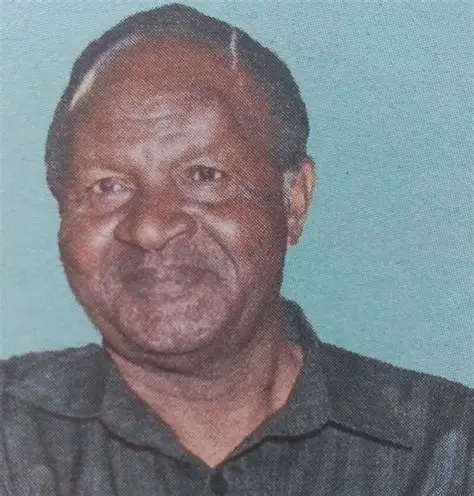
Kenya has renewed its industrialisation agenda with a focus on green growth, digital transformation, and global competitiveness as the country seeks to position itself as the manufacturing powerhouse of East Africa.
Speaking during the opening of the Kenya Industrialisation Conference 2025 at the Kenyatta International Convention Centre (KICC) in Nairobi, Cabinet Secretary for Investments, Trade and Industry Lee Kinyanjui affirmed that the government is committed to building a modern, efficient and sustainable manufacturing base that would drive job creation and economic growth.
He noted that Kenya’s industrial transformation is anchored on three pillars: industrial infrastructure through County Aggregation and Industrial Parks (CAIPs), digitalisation and application of artificial intelligence (AI) and greening of industries to meet global climate goals.
“These are not separate pursuits. They reinforce one another and define our competitiveness in a low-carbon global economy,” Kinyanjui explained and emphasised the need for synergy between government, industry and development partners.
Further, the cabinet secretary outlined the government’s focus on five priority value chains including cotton, leather, edible oils, pharmaceuticals and dairy that would strengthen Kenya’s manufacturing transformation.
He added that the revitalised Cotton, Textile and Apparel (CTA) sector is already showing positive results, creating jobs and reviving local industries.
“Through a revitalised Cotton, Textile and Apparel Policy, we are rebuilding the farm-to-factory continuum and proving that Africa can manufacture competitively and sustainably,” he said.
Kinyanjui also highlighted Kenya’s progress in green hydrogen and industrial decarbonisation, noting that ongoing projects at Ol Karia supported by the United Nations Industrial Development Organisation (UNIDO) are demonstrating the commercial viability of clean industrial energy.
On the other hand, he pointed out that the Samurai Bond financing package secured from Japan during the TICAD meeting would boost Kenya’s automotive and e-mobility sectors by catalysing vehicle assembly, enhancing electricity distribution, and promoting green mobility.
“Such catalytic finance demonstrates how public investment can unlock private capital, build supplier networks, and accelerate technology transfer,” he illuminated.
The cabinet secretary called on industry leaders to deepen local content, support innovation and promote digital adoption among SMEs, adding that the government would continue to improve policy coherence and the business environment.
“The government is an enabler through policy reforms and business environment transformation, but innovation, product design and investment lie with the private sector,” Kinyanjui noted.
In his remarks, Kenya Association of Manufacturers (KAM) Chief Executive Officer (CEO) Tobias Alando highlighted that Kenya’s manufacturing sector holds immense potential that must be unlocked through competitiveness, market access, and SME development.
“Kenya is an opportunity we often don’t see in our people and in our manufacturing sector. Anyone manufacturing in Kenya should be competitive with counterparts in the region and globally,” advised Alando.
He disclosed KAM’s focus on four key areas that include global competitiveness, market access, SME development, and industrial innovation, stressing that collaboration between large and small manufacturers is crucial for sector growth.
“The big and the small must walk together. SMEs are the future of any country and must be supported,” he urged.
Also speaking at the conference, the Anti-Counterfeit Authority (ACA) CEO Dr Robi Kinga reaffirmed the agency’s collaboration with manufacturers in combating counterfeit goods, which continue to undermine Kenya’s industrial competitiveness.
“We have seized counterfeit goods worth over Ksh4 billion since our inception, through awareness campaigns like ‘Fagia Bandia’ and enforcement of intellectual property rights, which means we are protecting genuine manufacturers and consumers,” assured Dr Kinga.
The CEO mentioned that ACA works closely with KAM and other partners to address both the supply and demand sides of counterfeits and ensure offenders face the law.
“Once we realise goods are counterfeit, we follow due process through the court system to ensure offenders are prosecuted,” he reiterated.
On his part, Bidco Africa CEO Vimal Shah lauded the government’s renewed focus on industrial transformation, saying Kenya’s manufacturing sector must embrace innovation, value addition, and technology to compete globally.
“Industrialisation is not just about factories. It is about creating value chains that employ our youth, promote exports, and empower local communities. We must think beyond production and invest in innovation, sustainability, and digital systems that make Kenyan products stand out internationally,” he asserted.
Similarly, Shah urged closer collaboration between the private sector and government in implementing policies that attract investment, reduce the cost of doing business, and enhance export competitiveness.
“Kenya has the talent and the entrepreneurial energy to become Africa’s industrial hub, but we must align our policies, infrastructure, and mind-set to global standards,” he maintained.
The conference brought together government leaders, manufacturers, development partners, and innovators who reaffirmed their shared commitment to building a green, digital, and globally competitive industrial sector that creates jobs, fosters innovation, and powers Kenya’s economic transformation.
- A Tell Media / KNA report / By Naif Rashid






